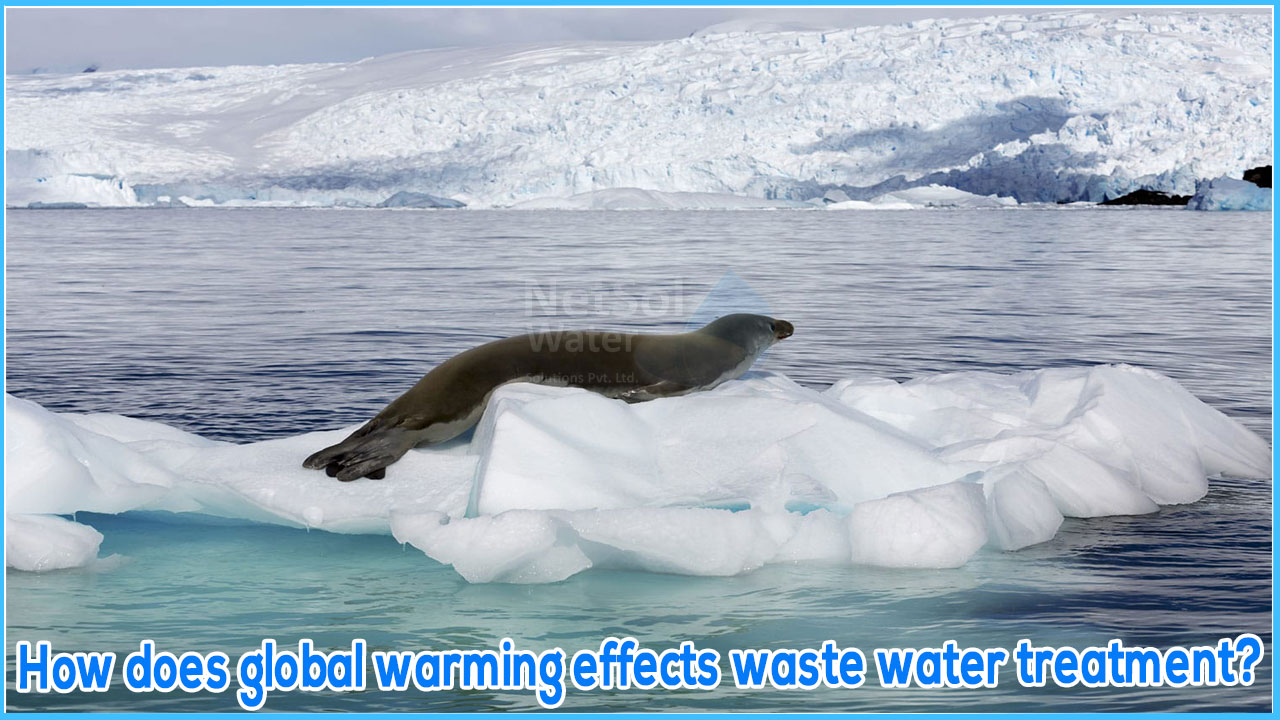Our planet is suffering from global warming and is facing its harmful consequences sooner than ever before. What’s more shocking is that we’re expecting a jump of 2-5 degrees Celsius, over the span of 30 years. But in this situation of crisis, what mostly gets overlooked, is the impact of global warming on wastewater treatment. This creates situations like inundated water supplies that lead to increased levels of contaminants in the water, the tension on wastewater treatment infrastructure, and worn water systems due to extreme climatic conditions.
CHALLENGES IN WASTE WATER TREATMENT:
1. INUNDATED WATER SUPPLIES
The northern hemisphere's glaciers and ice continue to melt, causing sea levels to rise. As a result, water treatment plants near the coast face the risk of higher-than-expected water levels for treatment. By 2050, the coastal regions are expected to experience a 7-10 degree rise in sea level. This rise in water levels may result in fewer wastewater treatment plants and pollution of clean treated water reservoirs. Adding to the damage, the warmer water in the current supply of water would have a negative impact on the delicate ecosystem found in the water bodies.
2. INCREASED PRESSURE ON WASTE WATER TREATMENT PLANTS
Water treatment infrastructure is currently under stress as a result of rising global temperatures. The following are two examples of how global warming directly affects treatment plants:
- Rising water levels force treatment plants to relocate to a higher elevation. This is done to relieve pressure on the water treatment plants.
- Existing infrastructures cannot withstand the hurricanes, storms, floods, and other natural disasters that are expected as a result of global warming.
As ice melts, fewer water resources will be available for treatment and use. This will increase the cost of wastewater treatment processes, putting additional strain on existing plants.
3. BIOLOGICAL REACTIONS IN WASTEWATER TREATMENT PLANTS
The rising temperatures cause a flurry of organism (mostly bacteria) activity in the water. Even minor temperature changes cause widespread biological reactions in water. These biological reactions result in the release of oxygen, which causes pipe rusting and corrosion. This necessitates the replacement of equipment on a regular basis due to increased wear and tear.These reactions frequently raise the temperature, resulting in evaporation. The reaction increases water density due to more sediments than before, making treatment more difficult.
With unpredictable climatic changes, focusing on wastewater treatment is a bad idea. Along with enacting policies that benefit our environment, businesses and industries can take advantage of our 'Pay Per Use' model, which allows them to pay only for the volume of wastewater treated rather than the entire wastewater treatment infrastructure. With us, users can upgrade their wastewater treatment equipment at any time and get equipment that meets their needs and specifications.
CONCLUSION
Climate change is regarded as one of the most significant challenges to urban wastewater systems in the coming decades. Climate change is expected to have a dual impact on wastewater treatment (WWT) plants. Climate change will have an impact on the processes that occur in a wastewater treatment plant (WWTP); more extreme weather events and earlier snowmelt runoff will result in more untreated sewer overflows, increased flooding, and so on. As water resources become scarcer, wastewater reuse will become more important as climate change accelerates.
Think of us, NETSOL WATER, when it comes to wastewater management for your company, fully customized to your specific needs! A low-cost method of reusing and recycling.



